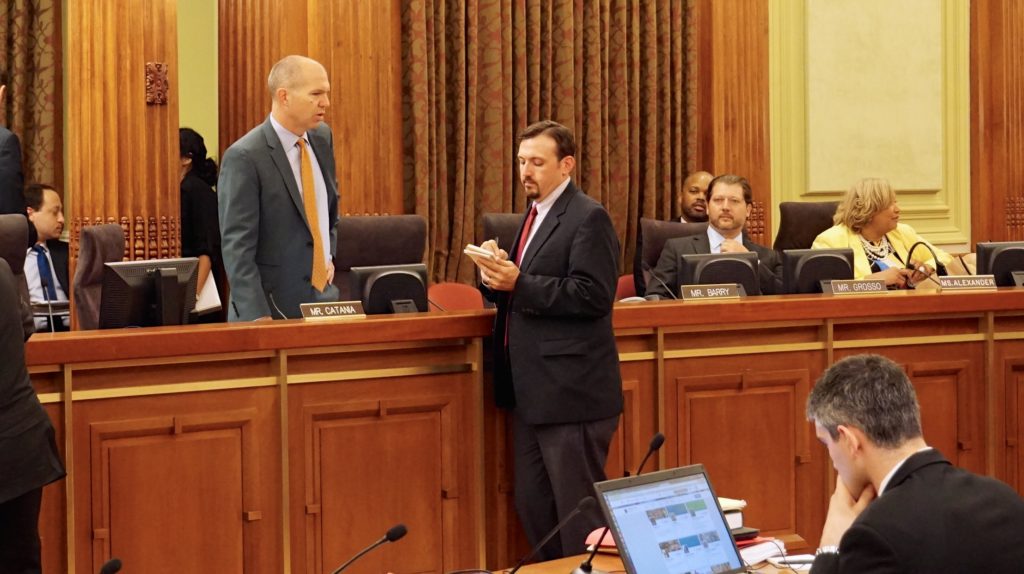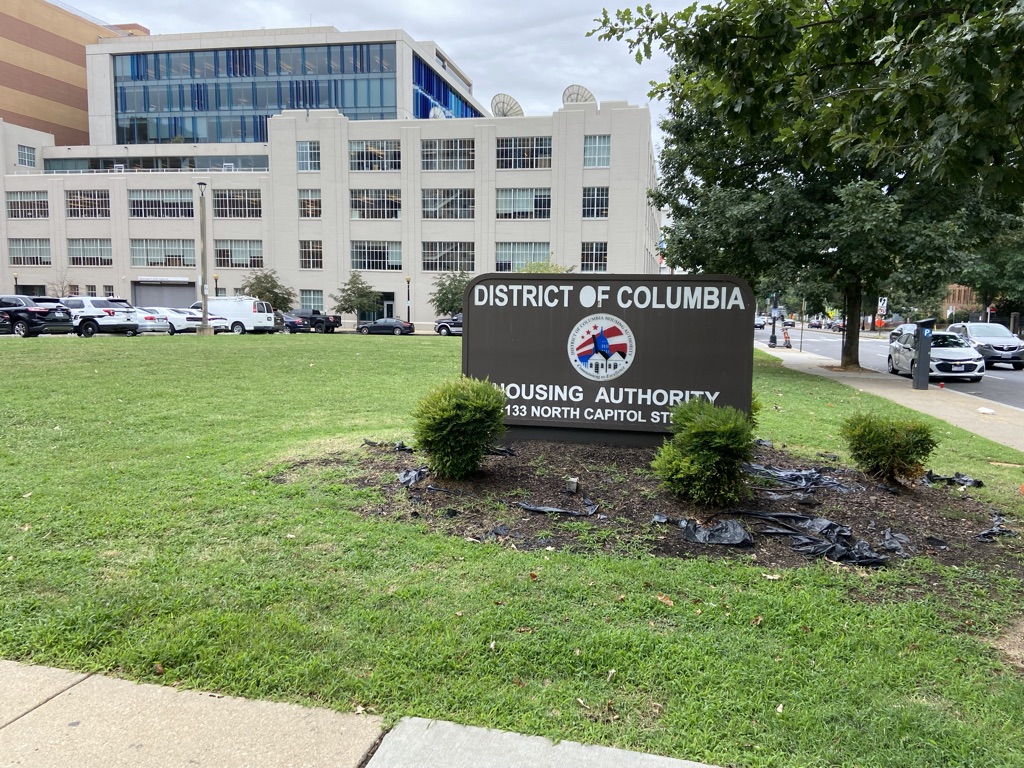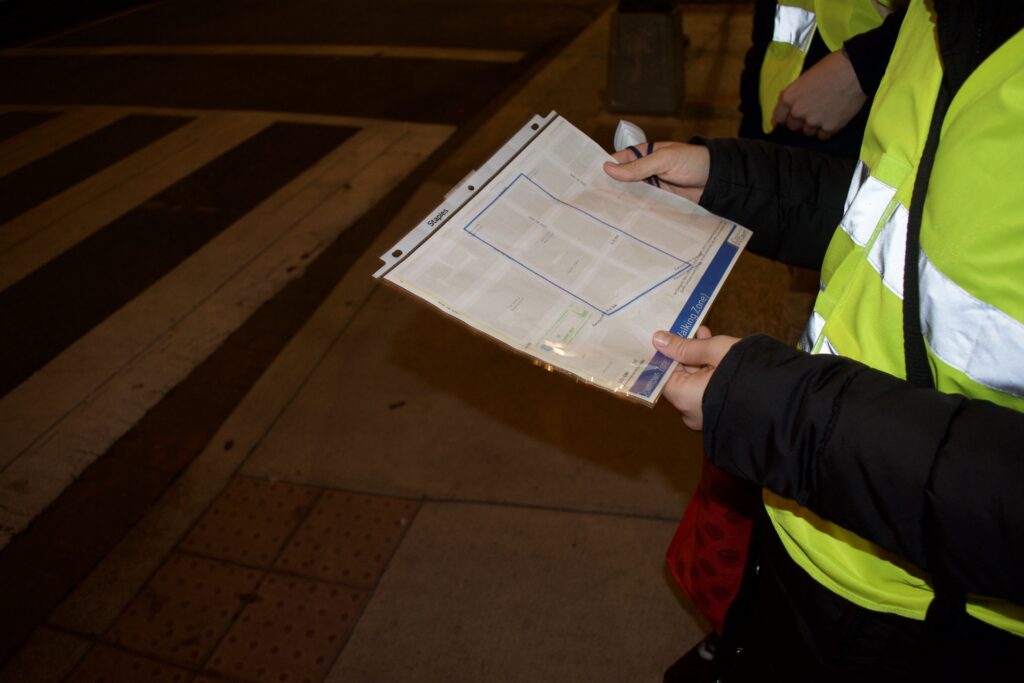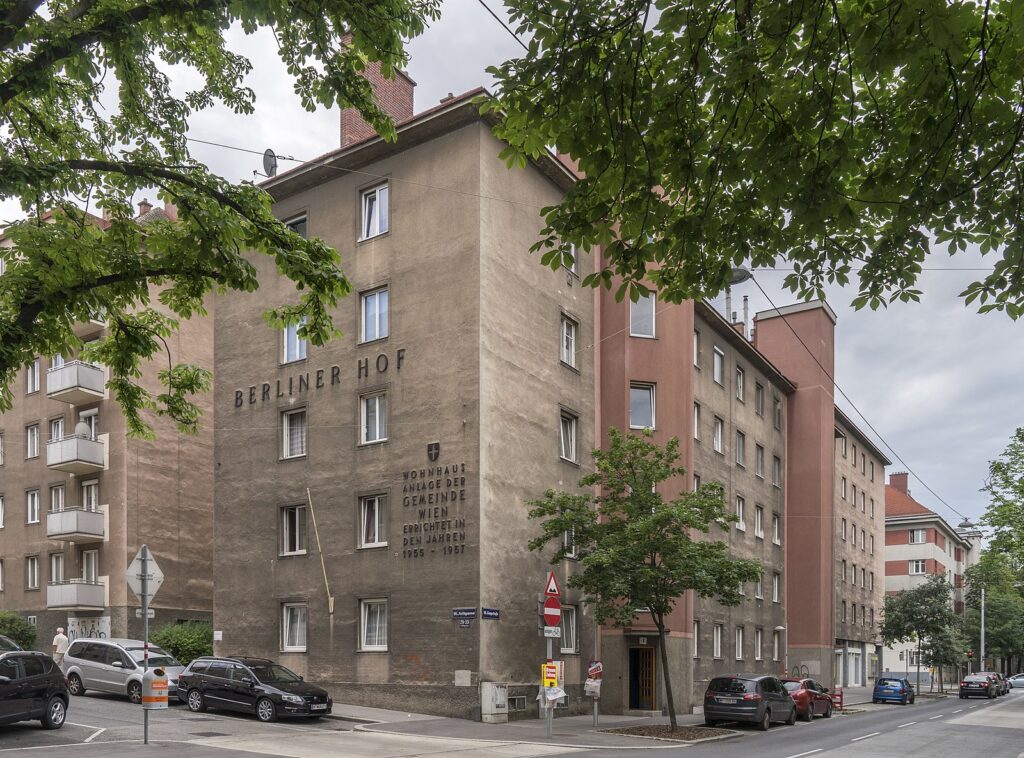Concerns about inadequate access to affordable housing and the backlog of costly repairs to run-down public housing units dominated public testimony at an April 11 budget oversight hearing held by the D.C. Council’s Committee on Housing and Neighborhood Revitalization.
Legislators heard from 38 witnesses, including members of advocacy groups, government housing experts, and city residents who said they encounter housing challenges due to limited incomes. The general sentiment was that as the federal government disinvests in public housing, the Bowser administration and the D.C. Housing Authority are struggling to address these needs.
[Read more: The D.C. Council is considering a bill that would allow more local oversight for the D.C. Housing Authority]
D.C. Housing Authority Executive Director Tyrone Garrett testified that DCHA “can no longer postpone … significant work [DCHA] is responsible for.”
Garrett cited “an unprecedented opportunity to repair and rehabilitate public housing.” He said citizens who are “most vulnerable” are living in the “dire straits of the national economy.”
He estimated $2.2 billion would be needed to rehabilitate and redevelop the District’s public housing stock.
Garrett testified that the Bowser administration is trying to preserve as much affordable housing as they can.
Committee Chairman and At-Large Councilmember Anita Bonds, Ward 8 Councilmember Trayon White, and Ward 1 Councilmember Brianne Nadeau attended the hearing.
Kamolika Das, a policy analyst for the D.C. Fiscal Policy Institute, testified that city government is not doing nearly enough for low-income residents. She said there are plenty of District families with less than $35,000 in annual income who spend 63 percent of it on housing, yet most of the District’s money goes to those making twice that amount.
Das said that DCFPI’s analysis is that the District’s $14.5 billion budget for fiscal year 2019 includes no funding for tenant-based vouchers to help people get off the waiting list. The Housing Authority waiting list for public housing and housing choice vouchers was frozen in 2013 with more than 70,000 names on it — some having waited decades. The list remains frozen with 40,000 households still waiting.
“People are dying in public housing because repairs aren’t made,” Das said. In an audit of approximately 8,000 Housing Authority housing units, at least 31 percent required urgent attention due to conditions such as toxic mold, collapsed ceilings, unsanitary conditions such as ruined plumbing and unchecked vermin and pests, the Washington City Paper first reported.
Legal Aid Society of D.C. Staff Attorney Amanda Korber testified that Mayor Bowser has not found enough money for Local Rent Supplement Program vouchers, a D.C. government program begun in 2007 to supplement the supply of federal vouchers. The mayor’s proposed budget included $3.9 million in new funds for the program. “People with no income,” she said in a published report, “have no alternative to public housing.”
The Housing Authority’s board of commissioners voted in favor of potentially privatizing up to 2,400 units in severe need of repair as part of a resolution passed in January. Korber questioned whether the District had adequate funds appropriated to comply with the Comprehensive Plan, the central document that guides development in the city. The District government needs to maintain a stock of affordable housing, Korber said.
Andrew Trueblood, appointed last fall as interim director of the Office of Planning, told Street Sense Media in a telephone interview that he values “public engagement” to answer these questions as the D.C. Council considers changes to the Comprehensive Plan this year. “All the city’s people are important; valuable for the city’s growth,” he said.
Another public engagement meeting to further consider the plan will be scheduled within the next two months, Trueblood said.
Constance Bradley-Bryan of Jubilee Housing, a nonprofit developer that prides itself in building “justice housing” for extremely low-income tenants, testified that the city seems to have no concrete plan for dealing with affordable housing.
Bonds said rebuilding deteriorated units takes five years. She asked the witnesses to consider what tenants in untenable public housing will be able to do in the meantime.
Del Pielago said one resident who got displaced from her sub-standard Barry Farm house to another public housing community in Southwest said housing conditions in her new place are “Horrible; I hate it.” After she was displaced from her community and went through the process of moving, her housing conditions are no better.
Bonds asked Garrett how the Housing Authority plans to address the housing for seniors that was gutted in a fire in October at The Arthur Capper House. Street Sense Media reported that 160 residents were displaced. Bonds said the facility is now occupied by squatters and repair to an elevator is still needed before the building can be considered habitable.
Seventy percent of public housing residents are Black, according to Bonds. “Are their needs not worth the investment?” she asked.
Detrice Belt, a Barry Farm resident, said she testified on behalf of her public housing community, which was first established there in 1942. Barry Farm is often its residents only community and social support system, Belt said. In order to make way for a complete overhaul of the site into a mixed-income and mixed-use development as part of the New Communities Initiative, which has been in the making for more than a decade, all but three Barry Farm households have been moved to alternate public housing or given Housing Choice vouchers to find their own housing on the private market. Those who chose to move to alternate public housing were guaranteed a “right to return” when the new development is finished. Some residents, along with other advocates in the community, have fought to delay and change the plan. Those displaced residents, including Belt, want to preserve the historic neighborhood’s original look and feel.
Her community wants the city government to get community “right,” Belt told Bonds during her testimony. She suggested that that committee meet with Barry Farm residents soon.
Barry Farm resident Vernitta White told the committee she’s been on the waiting list for a Housing Choice voucher since 2001.
Adam Maier, Director of Housing Partnerships for Pathways to Housing, said his organization works with more than 150 landlords.
Maier said DCHA’s required house inspections for voucher-holders take too long and are cumbersome. He said the federal housing inspection process, through the U.S. Department of Housing and Urban Development, is more streamlined than DCHA’s, and consequently, it takes two or three months to house a formerly homeless person.
D.C. Council will get back to working on the Comprehensive Plan after the May 28 vote on the budget. They will start dealing with edits to the “framework element” of the Comprehensive Plan by the summer after an unprecedented 3,000 public comments, Council Chairman Phil Mendelson’s office told Street Sense Media.
A video archive of the full hearing is available courtesy of the D.C. Council: https://tinyurl.com/DCHA-2019-oversight








